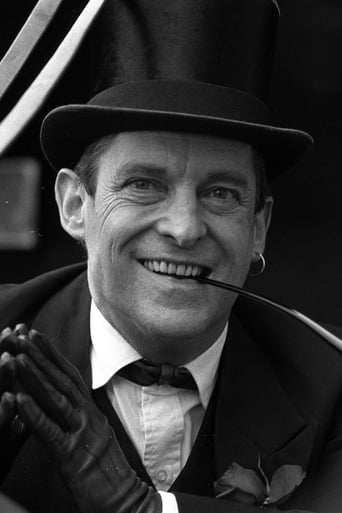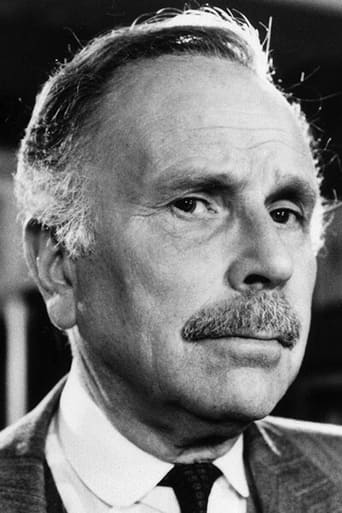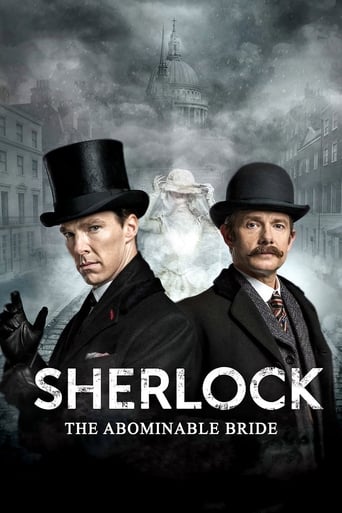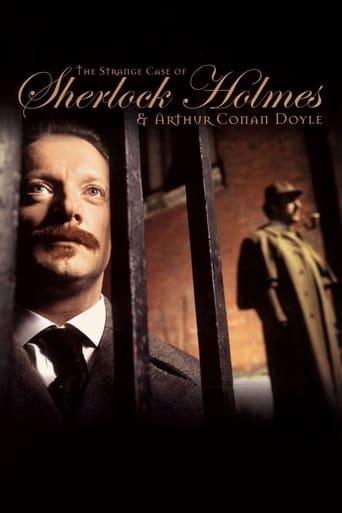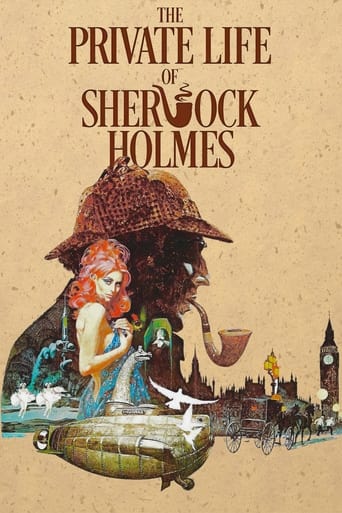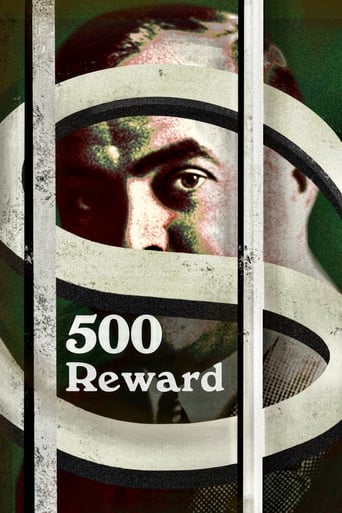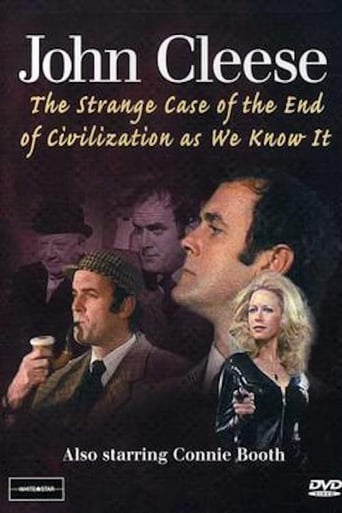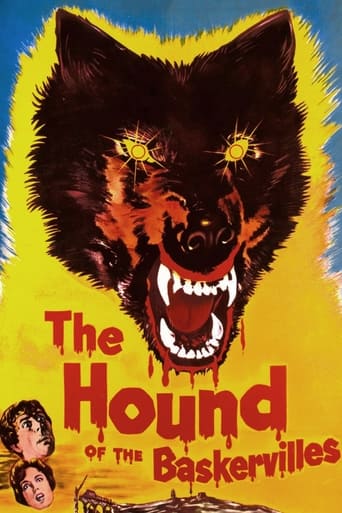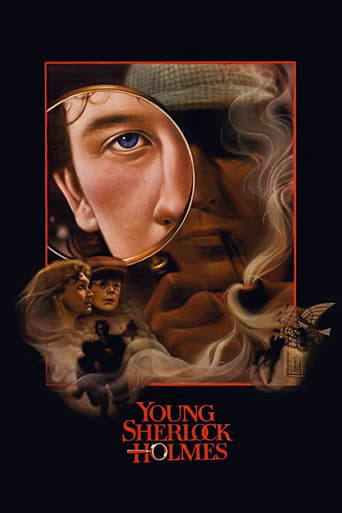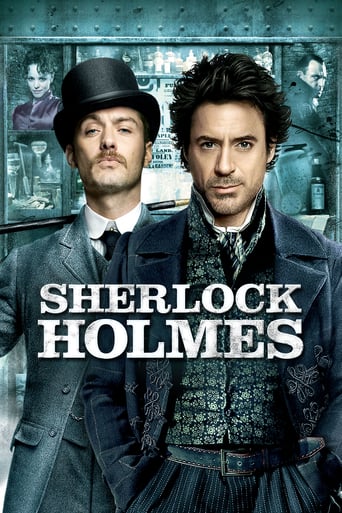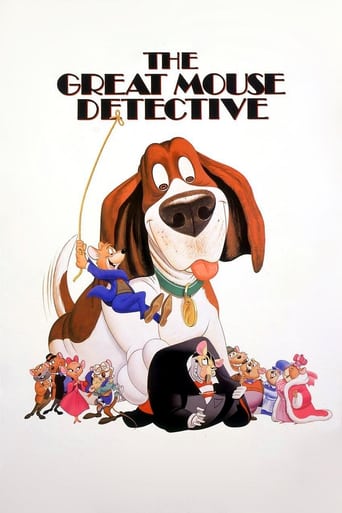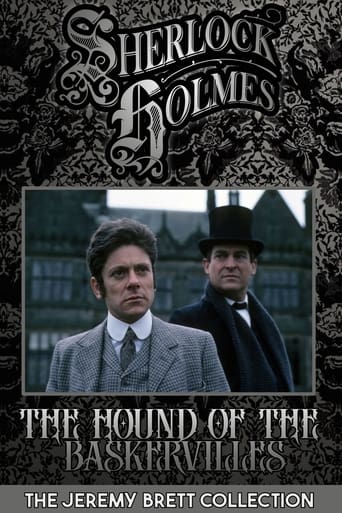
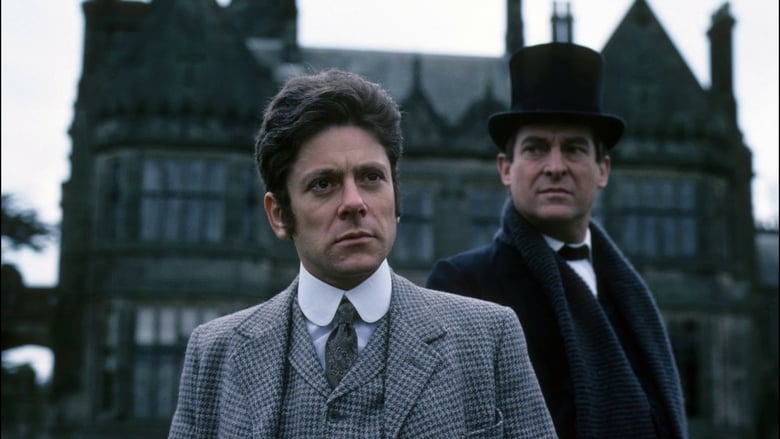
The Hound of the Baskervilles (1988)
Sir Charles Baskerville dies on the moor under mysterious circumstances and rumors abound about a demonic hound. When the American heir arrives to take charge, a family friend calls in Holmes and Watson to get to the heart of the mystery.
Watch Trailer
Cast


Similar titles
Reviews
I think we would have had the best "Hound" ever if Granada had invested enough money in this Jeremy Brett/Edward Hardwick production. As it is, it is a very good production, but it could have been a truly great one.This production has so much going for it—of course, starting with the best Holmes and Watson ever—Brett and Hardwicke.Kristoffer Tabori is wonderful as Sir Henry Baskerville—just about the best I've ever seen. He really conveys Sir Henry's youthfulness. You easily believe that he has grown up in Canada and is a bit of a "fish out of water" in England. Plus he totally looks the part.Alastair Duncan is also wonderful as Dr. Mortimer. Mortimer is usually portrayed as just the standard cardboard cutout of the older stiff- upper-lip British professional man. It is such a breath of fresh air to have this character portrayed as younger and much closer to the way he is described in the original story.However, Fiona Gillies isn't so successful as Beryl Stapleton. This is a pivotal character and the weakness of this performance undermines the overall success of the production. They could and should have paid for an A-list actress for this part.They could and should have shot and edited the whole sequence concerning the death of Sir Charles far better—in such a way as to really evoke his terror and to convey his belief in the supernatural character of the hound. After all, this scene sets up the entire framework for the story, as well as its mood.Better special effects would have greatly improved the depiction of the attack of the hound on Sir Henry.Just imagine if this production had had the budget of a first rate feature film—and all the additional resources and talents that would have made available. It could have been the definitive "Hound."
I used to enjoy watching these adaptations of the Sherlock Holmes stories; in fact, these are what got me reading the original stories in the first place. The best thing about them were the portrayals of Holmes (Brett) and Watson (Burke/Hardwicke). The worst thing was usually the liberties taken with the stories by the writers.Their "Hound" is a fairly faithful adaptation. Where liberties are taken, it's usually for the sake of compressing the story. I haven't seen this for a while, but two things stuck out to me as being particularly off with it: (1) The actress playing Beryl seemed really wrong for the part. (2) Charles Baskerville's terrifying death was described wonderfully in the book ("...He was running, Watson - running desperately, running for his life, running until he burst his heart..."). But in this adaptation Charles' fleeing is handled so casually as to almost give the impression nothing important is happening. It could have been done so much better!
If you want to understand film, you need to understand the three main narrative types: noir, that genre derived from the musical, and the detective story.While the detective story in film essentially means Agatha Christie, you can't understand that unless you understand Holmes. And the "Hound", my friends is the only long form we have of the Holmes stories.Further, if you are looking for a version that is true to the source (more or less) plus being slightly engaging, this is your station for the evening. There are lots of problems, not the least of which is the material. The Holmes stories are impossibly unfilmable: it is "precinematic" literature that imagines engravings first (a severed engineer's thumb for instance) and then spins an intellectual universe around that. Within this is the yeoman reportage of Watson which is distinctly journalistic. This only works well on the short form. "Hound" was a failure even by Victorian pulp standards, because it attempted subplots and parallel threads and succeeded imperfectly. So in "Hound" we start with a poorly crafted story that is also inherently uncinematic.But what a story! Doyle was by this time just entering his own belief that the supernatural did exist. In fact, he became the leading figure in the world-wide spiritualist movement. After this period he would famously play the "modern" scientist to the debunking Houdini an amazing reversal of roles: Conan Doyle invented the "thinking machine" human rooted in logic and Houdini made a living fostering the illusion of hidden powers. Doyle's struggle with the two sides mirrors that of the story. Add to that the production values of this series. Of all attempts, this has the best depiction of Holmes, or at least it started out that way. Brett's Holmes is full of private and explosive thoughts. His character is bipolar and attracted to drugs.True to the established BBC model, the producers shifted the creative team around for each episode so the quality varies. The director this time, Mills, takes a Sherlockian perspective himself. When the story starts and before we get banished to the moor, he establishes the detective's eye. His camera swoops about, examining details of the situation as if it were our eye and we were Holmes.As an example, there's a great scene with the doctor from the moors ("Mortimer," get it?), the new Sir Baskerville, Holmes and Watson having breakfast in a fancy hotel. While another TeeVee director would give us two alternating over the shoulder shots with an establishing one, Mills swoops all about the whole room then after a 180 degree swing settling on the threatening letter. It is dePalma drawn smallish for the little screen, but its nice.And overlain on all this is Brett's second edition of Holmes. It is after his breakdown and first institutionalization. After he has disfigured his hair, after the lithium has added 40-50 pounds and drained all the life from his face and spirit. To get the value of this we need to remember his previous Holmes version from the motions he copies from that time.And so we have the rule of twos set in discovery: an author casting reason against magic and personally deciding on magic; his character casting the same and deciding the opposite; the filmmaker (such as they are in TeeVee projects) casting the alert eye against an uncinematic vision and personally winning; and the actor casting the same and personally losing.Along the way the adapter forgets the brutish, wife beating artist, the one concession Doyle made to reflection.Ted's Evaluation -- 2 of 3: Has some interesting elements.
"The Hound of the Baskervilles" is not my favorite Sherlock Holmes film: There are problems with the hound no matter how it is portrayed, and the violence in the film is disturbing. "The Hound" has perhaps suffered from overexposure; it is by all odds the most famous of the Sherlock Holmes tales. It lacks the substance of other full-length Holmes films, such as "The Sign of Four" and "The Master Blackmailer." And it lacks the horror of "The Last Vampire," which Conan Doyle wrote as a tribute to his friend Bram Stoker, the celebrated author of "Dracula."The acting in the Sherlock Holmes films is consistently good. For me as for many other people, Jeremy Brett was the quintessential Holmes. It is a pity he is no longer around to play the part, and an even greater pity that the Holmes films are being remade in what promises to be a greatly inferior version.


